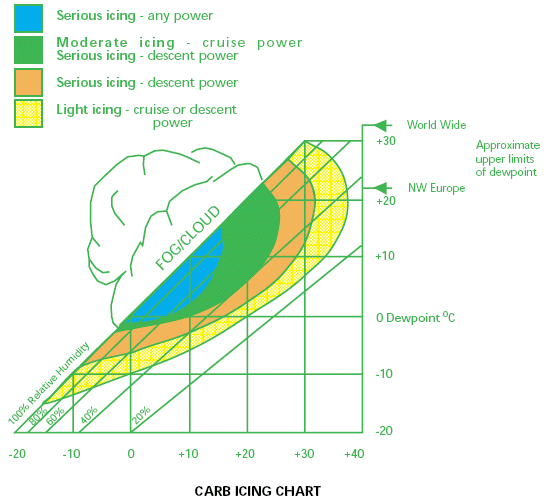Well, I have no graphs to show. I'm positive that at lower air temperatures the engine operates at an increased volumetric intake efficiency. I know of no lower limit to this "increased density" effect, although it
could exist a limit. I imagine that if this limit exists, it falls well below "normal" temperatures in our planet, that is, as long as steel doesn't break because of the cold. Of course, I don't know what would happen in space or some exotic place, but I doubt very much that you'll find engineers trying to figure out what would happen if you feed your car with liquid air (hey, there you have an idea! Please, warn me so I don't walk by your garage by coincidence, in case the car explodes or something...).
The reason why car intake temperature is controlled and, in many cars, air is heated if below some minimum temperature, is because lower intake air temperatures tend to cause poor carburation, sometimes even leading to carburetor icing, especially under full load operation. In addition, the intake of very cold raw air will also delay the warmup of the engine during cold start, thereby prolonging operation in a poorly lubricated state. Lastly, a rapid warmup is important for ecological reasons, because the emission of exhaust pollutants is much higher when the engine runs cold.
I'd ask if I were Conceptual (I'm starting to know you, guys:)) : OK, so why poor carburation?
At low intake-air temperatures, especially in the case of diesel engines, an inadequate final compression temperature occurs, and therefore an increasing emission delay, that is to say
the time from the entry of the fuel into the combustion chamber until the ignition of the same becomes too long. Furthermore, at low intake temperatures, local over-enrichment, incomplete combustion and high pressure gradients occur as a result of abrupt mixture conversion in the cylinder.
I imgagine everybody has noticed the amount of smoke a diesel produces when started in cold weather...
Another possible question: what's the deal with carburetor icing? I'm also positive (because I fly) that carburetor icing occurs when the air is humid. As DaveKillens insinuated,
there is a temperature drop in the venturi because of Boyle-Mariotte's law. Below some intake air temperature, this causes the water vapour to freeze. So, you'll get ice on throat, making it narrower. This, in turn, increase the venturi effect which makes the temperature to drop even more, maybe blocking the carburetor completely. You can also jam the butterfly or other parts.
This is the chart for airplane pilots, just in case:

On the X-axis is temperature in centigrades, on the Y-axis is the dew-point, the diagonals represent relative humidity (which can be deduced from dew point and air temperature). The coloured curves represent the kind of trouble you're in.
Final question I imagine Conceptual would make: all right, give me some numbers for temperature vs power.
Final answer: sorry, I have not, don't be so lazy, I also have a life.

From the chart you can easily deduce that under minus 20 centigrades, there will be blockage of the venturi, unless you pre-heat the air (which is what most cars do, that's one of the reasons for the existance of the intake air temperature sensor your car has).




